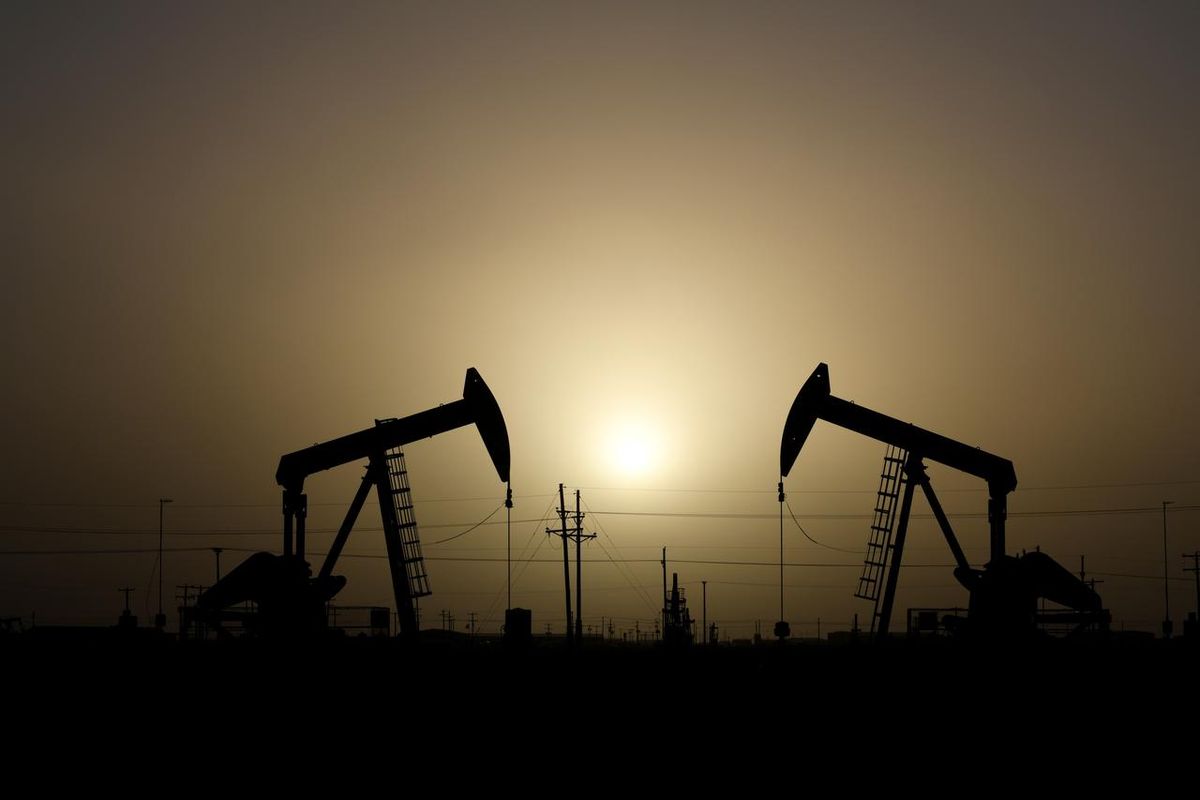The pandemic and shifting public opinion may signal the end of oil

A few minutes every morning is all you need.
Stay up to date on the world's Headlines and Human Stories. It's fun, it's factual, it's fluff-free.
Even with an end to the virus, oil has suffered during 2020 and must also deal with the growing public fervor against fossil fuels in the future.
Despite recent international oil finds and impetus from an oil-friendly President Donald Trump, oil, which has been drilled for continuously in the United States since 1859, may be facing its twilight days in the US.
The impact of the coronavirus pandemic, which has shaken the world for much of 2020, has resulted in a drop in consumer demand for oil that has seen prices plummet. At one stage, as oil dipped into negative figures, producers were incentivized to pay others to take their now less-than-worthless product away.
COVID-19, in many cases, has only emphasized what is an increasingly growing trend in the US, especially. The political impetus is in favor of a growing list of alternative and carbon-free sources of energy, which matches growing public opinion against oil and for non-fossil fuel alternatives.
Despite the tides shifting against oil, some are still attempting to stage a revival of its fortunes in the US. These efforts may come too late to save oil, with some arguing that the US and the world now face more pressing concerns.
Oil’s boom
Oil’s recent past has not always been marred by such dramatic declines.
The 21st century has witnessed two recent “booms” in the price of oil and in the general health of the industry itself.
Beginning in 2005 to 2010, the first “shale” boom saw the output of natural gas and oil rise, spurring a surge in employment in the sector. The number of workers employed in gas and oil extraction in the US rose from 125,000 in the first half of 2005 to a peak of 200,000 at the end of 2014.
Although this first “boom” ended in a “bust,” another revival of shale production spurred the sector on after a decline between 2015 and 2017. In 2019, a record 12.2 million barrels of US oil were produced, up from some 8.8 million in 2014, just before the end of the first, long “shale boom.”
This second boom created fewer jobs in oil and gas production and extraction but saw the US increasingly move along the path of energy independence. For instance, as US oil production rose, imports plummeted. As a result, domestic production of oil met 60% of US demand in 2019 – a total of 20.46 million barrels of oil a day.
“American energy”
The Trump administration, despite warnings from climate experts, has embraced this apparent revival of oil in recent years.
President Trump has accelerated long-standing plans to begin drilling in the untouched Arctic National Wildlife Refuge, with auctioning for a 1.6 million-acre coastal plain set to begin by December 2021.
Alaska has long been seen by Republicans as an untapped fuel source, but the expansion of drilling into the previously-untouched natural wildlife refuge has been met with criticism from environmentalists, Alaskan natives and now Democratic presidential nominee Joe Biden.
A report by the Center for American Progress has claimed that the life-span of drilling operations in the wildlife area would see the release of more than 4.3 billion metric tons of carbon dioxide into the atmosphere – roughly equal to three-quarters of annual US emissions.
The president and his supporters have characterized oil and other fossil-fuels as “American energy,” with advocates of alternative-energy and green-energy sources labeled as “socialists” and far-left, anti-American “radicals” intent on bringing down the US economy.
In a campaign event in Texas, President Trump stated that he would “never let anyone put American energy out of business,” even though Democratic plans for shifting to alternative energy sources such as wind and solar would also create hundreds of thousands, if not millions, of jobs for construction workers, scientists and energy workers themselves.
Trump’s embrace of “big oil” has been met with plaudits in the industry. Oil billionaire Harold Hamm recently stated in a Fox Business interview that Trump “should get a second term” for stabilizing the market.
Hamm went on to optimistically claim that oil will “survive COVID-19” but would not survive “socialism,” that is, advocates of sustainable energy sources.
Impact of coronavirus
Optimism surrounding the oil industry’s recent boom and Hamm’s projection that oil will “survive COVID-19” may be misplaced.
Although it is true that oil production has steadily increased in the US in recent years, even as new oil finds and deposits of natural gas have been discovered around the world, the impact of the COVID-19 pandemic has been significant and cannot be ignored.
The price of oil dropped to unprecedented lows even in the early days of the coronavirus pandemic. A worldwide collapse in demand – in a new world of lockdowns and little international travel – was not made up for by a slowing of production between The Organization of the Petroleum Exporting Countries (OPEC) and oil-producing states such as Russia.
Instead, OPEC engaged in a catastrophic price war that saw an overproduction of oil and a subsequent collapse in prices. Throughout the crisis, extreme swings in the price of oil were common and at one point in April oil dipped into negative figures, with prices for WTI (West Texas Intermediate) crude oil dipping to minus US$40 a barrel.
Although it’s likely that prices and production will recover with the end of the coronavirus pandemic, international airlines, in particular, will have suffered enough as a result of the crisis that levels may not recover to their previous highs.
Projections by the US Energy Information Administration show that while oil demand globally will recover to around 100 million barrels a day in 2021, this is still a decrease from figures in 2019 of 102 million barrels a day.
Even with an end to the virus, oil has suffered during 2020 and must also deal with the growing public fervor against fossil fuels in the future.
Political impetus
Projections for oil’s recovery with the end of the coronavirus fail to take into account the growing political impetus against fossil fuels in general.
A Pew Research survey of the American public has been particularly revealing. Conducted before the outbreak of the virus in November 2019, two-thirds of US adults – 67% – stated that the federal government was not doing enough to combat the effects of climate change.
Likewise, three-quarters of Americans – about 77% – agreed that the government should prioritize energy from alternative sources such as wind, solar and hydrogen rather than increasing US production of fossil fuels.
Typically, those in favor of shifting emphasis to alternative energy sources are younger or more liberal politically, but a majority – some 78% – of young Republicans aged 18 to 38 also believe that alternative energy sources should take priority over fossil fuels, despite President Trump’s promise to support what he sees as more “American” forms of energy.
In this sense, the climate plan for Democratic presidential nominee Joe Biden appears more attuned to the shift in public opinion. Its main goals include eradicating carbon pollution from the power sector by 2035, with an ambitious goal of net zero emissions by 2050.
Biden himself stated in a July 14 speech in Wilmington, Delaware, that the coronavirus pandemic and a shattered US economy has provided an “incredible opportunity not just to build back to where we were before, but better, stronger, more resilient,” which includes phasing out fossil fuels such as oil for alternative, greener energy sources.
The coronavirus pandemic has already seen an unprecedented drop in carbon emissions as travel and production has ceased in many regions of the world, with a 4.6% drop in carbon emissions projected as a result of the pandemic.
With public opinion already shifting in favor of alternative energy sources and the coronavirus having demonstrated what a drop in carbon emissions could feasibly look like for the planet, efforts to prop up an ailing US oil industry in the US may prove misguided.
Have a tip or story? Get in touch with our reporters at tips@themilsource.com




Comments ()